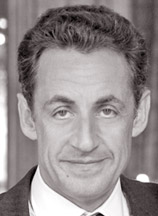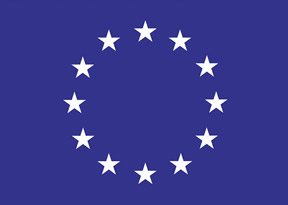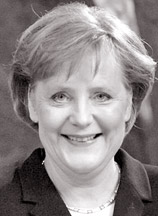Will Europe take to Merkel's shape and style?
 As the Bali Democracy Forum IV that brought in leaders from different
regions of the world was discussing the progress of democracy in diverse
cultures and traditions of governance on Thursday (8), the European
Union began its crucial summit to work out a solution to the prevailing
crisis in the Euro Zone, which shows all signs of spreading across the
Atlantic to the United States and threatens other parts of the world
too. As the Bali Democracy Forum IV that brought in leaders from different
regions of the world was discussing the progress of democracy in diverse
cultures and traditions of governance on Thursday (8), the European
Union began its crucial summit to work out a solution to the prevailing
crisis in the Euro Zone, which shows all signs of spreading across the
Atlantic to the United States and threatens other parts of the world
too.
Addressing the Bali Forum President Mahinda Rajapaksa said that if
democracy is to be meaningful and command the respect of the people, it
must have a direct impact on their everyday lives. This necessarily
calls for the closest possible interaction between government and the
community. The mechanisms of government must have effective application
at the grassroots level, in order to address issues and to provide
relief.
"It has always been important to us to ensure that the forms and
institutions of democracy, far from being an ideal remote from the
people, should be part and parcel of their experience," he added.
European Union
There is a striking contrast to this principle of democracy in the
efforts being made to work out a solution to the Euro Zone and European
crisis, with the negotiations at the Euro Summit, paying the least
interest to what could be the voice of the people of Europe on proposals
that would have a major impact on their lives immediately, and in the
years to come.
 |
 |
 |
| Nicolas
Sarkozy |
|
Angela
Merkerl |
The European Union that is in crisis today is an economic and
political union of 27 independent member states which are located
primarily in Europe. The EU traces its origins from the European Coal
and Steel Community (ECSC) and the European Economic Community (EEC),
formed by six countries in 1958. The EU has since grown in size by the
accession of new member states, and in power by the addition of policy
areas to its remit. The Maastricht Treaty established the European Union
under its current name in 1993. The latest amendment to the
constitutional basis of the EU, the Treaty of Lisbon, came into force in
2009.
In 2002, euro notes and coins replaced national currencies in 12 of
the member states. Since then, the euro zone has increased to encompass
17 countries, and the EU has 10 other members that do not use the euro.
With a combined population of over 500 million inhabitants, or 7.3
percent of the world population, the EU generated a nominal GDP of
16,242 billion US dollars in 2010, which represents an estimated 20
percent of global GDP when measured in terms of purchasing power parity.
Strong economies
The problems that the EU has with democracy, although it is a major
voice in support of Western style democracy in other parts of the world,
came with the rejection of the attempt to have a European Constitution
by the French and Dutch voters in 2005. This led to changes to the
treaty proposed as amendments to existing treaties, thus avoiding the
necessity for referenda. Although originally intended to be ratified by
all member states by end 2008, this timetable failed primarily due to
its initial rejection by the Irish voters, where a referendum is a
constitutional requirement. However, this decision was later reversed in
a second referendum in Ireland in 2009.
This fear of the voters is what caused the key movers in the EU
today, Germany and France with their strong economies, to come out
harshly against the former Greek Prime Minister when he proposed placing
the latest austerity package proposed by the EU for Greece before the
Greek people at a referendum. The idea had to be abandoned and Prime
Minister George Papandreou was soon forced out of the European political
stage.
The latest Euro Summit is being driven by Germany, with Chancellor
Angela Merkel getting the acquiescence of French President Nicolas
Sarkozy to the German proposals on meeting the euro zone crisis, which
Sarkozy earlier opposed. Addressing the European People's Party in
Marseilles on Thursday, before the European Summit began, Merkel was
very strong in her demands for both stability and solidarity in Europe.
But as analysts see it this is to be achieved largely on Germany's own
terms, with the possibility of Merkel and Sarkozy seeing a benefit in
some members of the EU opting out of the Union, under the harsh
conditions being imposed, and the perceived invasion of the sovereignty
of the nations concerned.
The Economist commenting on the German moves to resolve the crisis
titled 'Step by step to disaster' said: "The chancellor's call for
political union is at most incongruous when set against German
obstruction of almost all ideas for resolving the euro crisis. Issue
joint Eurobonds? Nein, that would encourage debtors to fall back on
their sinning ways. Urge the European Central Bank (ECB) to be the
lender of last resort to vulnerable sovereigns like Italy? Nein, that
would risk inflation. Pool the reserves issued to each country by the
IMF (special drawing rights) to boost the euro zone's underpowered
rescue fund? Nein, that would amount to taking the (German) Bundesbank's
gold." (The Economist - November 20, 2011)
Political leaders
The reality today in Europe, and by extension in other regions where
the euro zone crisis is having its impact is that it is no more the
elected political leaders of nations that are taking decisions on key
matters that affect the lives of people, but the banks and the markets.
Some analysts have stated that the appointment of technocrats as the
Prime Ministers of Greece and Italy, to meet the rising challenge of the
crisis amounts to a coup by the banks. What is seen today is every
effort being made to support and steady the banks that were largely
responsible for the huge levels of debt carried by many European
nations, with little regard for the travails this causes to the lives of
the people.
Merkel doctrine
Far from any democratic consultation with the people, Democracy is
now made to walk on the side lanes of Europe as Germany's Angela Merkel
and France's Sarkozy steer the European Union, or what will eventually
be left of it, towards a strong Euro, even with lesser euro zone
members. Meanwhile the German-French initiative, where Berlin is clearly
taking the lead, is also seen as the new rise of German power in Europe.
Ironically, if the last rise of German power came through huge
inflation, when Germany turned to arms production to provide employment
to its people, the new rise of Germany comes with Merkel's determination
to prevent German voters having to suffer any inflation, and keep the
German Bundesbank the safest place in the midst of a whirling monetary
and fiscal hurricane. If Europe follows the Merkel doctrine of punitive
fiscal measures on those who do not fall in line, what can emerge is a
Europe in the shape and style of Angela Merkel. Is this the solution to
a crisis that has its roots in the very origins of the European Union,
and what would it do to European Democracy?
|



